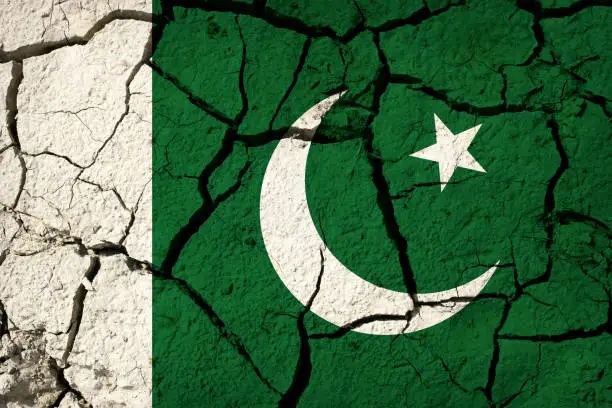The 27th Amendment may formalize Pakistan’s long slide from fragile democracy to military-controlled state, cementing power in the hands of the army. What began as a reactionary state may now be ending as a militarised one — a nation trapped by the very fears and insecurities that gave it birth. Pakistan’s tragedy is not in its weak beginnings but in its refusal to evolve, mistaking the power of the gun for the strength of governance, and security for stability. In seeking permanence through military might, it risks losing the one thing that could truly hold it together — the will and consent of its people.

By Subhash Dhuliya
Pakistan once again stands at a dangerous crossroads. The Shehbaz Sharif government is preparing to present the 27th Constitutional Amendment, a move that could redefine the nation’s political and power structure. At the heart of this proposed amendment lies a decisive shift — one that could place the country’s powerful military virtually beyond civilian control. For a state long described as fragile, crisis-ridden, and dangerously militarised, this amendment may well mark the formal institutionalisation of Pakistan’s transformation from a struggling democracy into a military-dominated state.
From the day it was carved out of British India, Pakistan’s political evolution has been defined more by what it opposed than what it stood for. Born out of religious nationalism and anti-India sentiment, the young nation built its identity around the politics of reaction, not reform. The idea of Pakistan was framed as an ideological counter to India — an “Islamic alternative” that, in practice, turned into a security-driven, reactionary state. This perpetual posture of hostility and insecurity placed the military at the centre of national life. Development, education, and social welfare took a backseat to defence and ideology. Over the decades, this imbalance hardened into a defining feature of the Pakistani state — one where the military came to represent both the guardian and the ultimate arbiter of power.
Born out of hostility and insecurity, Pakistan built its identity not on development or democracy, but on defence and denial — a state defined more by what it opposed than what it aspired to become
The proposed 27th Amendment only deepens this historical pattern. Reports from Pakistani media suggest that it would revise Article 243 of the Constitution, which governs the appointment and command of the armed forces. The changes are expected to expand the institutional autonomy of the military and further insulate it from civilian oversight. This would strengthen the already formidable position of the current army chief, Field Marshal Asim Munir, who was elevated to that rank after India’s Operation Sindoor earlier this year. Since then, Munir’s influence has extended well beyond the barracks — from diplomatic missions to trade negotiations — signalling a new phase in Pakistan’s civil-military power dynamic.
The amendment also includes provisions for creating a Federal Constitutional Court, shifting control of judicial appointments and transfers to the executive, and reducing the share of provincial governments in federal revenue. These proposals, critics warn, will erode judicial independence and provincial autonomy — but their deeper significance lies in what they collectively represent: the centralisation of authority and the concentration of power in the hands of the military establishment and its civilian allies.
This is not an isolated development but part of a long, dark trajectory. Ever since independence, Pakistan’s civil institutions have remained weak and fragmented, leaving a vacuum that the military eagerly filled. From Ayub Khan’s coup in 1958 to Zia-ul-Haq’s Islamisation in the 1980s and Pervez Musharraf’s martial rule in the early 2000s, the military has not just ruled Pakistan — it has shaped its political, economic, and ideological foundations. Even during nominally democratic periods, generals have continued to call the shots from behind the curtain. Intelligence agencies like the ISI have operated as a parallel power structure, influencing politics, the media, and even foreign policy.
Each military intervention promised stability but delivered stagnation. The stronger the army grew, the weaker Pakistan’s institutions became — until civilian rule became a façade for military dominance
The result is a state whose core institutions are militarised to the bone. Pakistan’s foreign policy revolves around perceived existential threats, primarily India, while its internal policy is shaped by the need to suppress dissent and maintain control over a deeply divided federation. In the name of “national security,” the military has justified interventions in every sphere of life — from the economy to education. Defence budgets continue to expand even as the country teeters on the brink of economic collapse.
The consequences of this militarisation are now unmistakable. Pakistan’s economy is in shambles, with foreign debt mounting, inflation surging, and the IMF dictating painful austerity measures. Civilian governments remain weak and dependent, often serving as little more than administrators of military policy. Meanwhile, the social fabric is fraying: ethnic insurgencies in Balochistan and Khyber Pakhtunkhwa, separatist movements in Sindh, and growing resentment against Punjab’s political and economic dominance are signs of a federation under stress.
The external threats that have long been used to justify Pakistan’s militarisation have, paradoxically, multiplied because of it. The country’s relationship with India remains locked in hostility, marred by cross-border terrorism and ideological confrontation. Its ties with Afghanistan are equally fraught. Once the architect of the Taliban’s rise, Pakistan now finds itself battling militant groups operating from within its own borders. The tribal areas, once used as sanctuaries for jihadist groups, have turned into battlegrounds for insurgency and extremism.
To the West, Pakistan has been a reluctant ally and an untrustworthy partner. During the U.S.-led war on terror, the Pakistani military cooperated with Washington while elements within the ISI secretly aided militant groups fighting American forces in Afghanistan. This double game alienated both sides. American leaders from George W. Bush to Barack Obama described Pakistan as “the most dangerous place in the world” — a country armed with nuclear weapons but riddled with instability. There were credible reports that U.S. special forces had contingency plans to secure or neutralise Pakistan’s nuclear arsenal if Islamist militants ever seized control. That such plans even existed speaks volumes about the global fear surrounding Pakistan’s volatility.
Now, as the 27th Amendment looms, these old fears return with new urgency. The proposed constitutional changes, if enacted, could formalise the military’s pre-eminence in Pakistan’s political system. It would effectively create a state within the state, one where the army is not merely the defender of the nation but its de facto ruler. With Field Marshal Asim Munir emerging as the most powerful figure in Pakistan’s history, the amendment appears less a legal reform and more a constitutional coronation.
Supporters of the amendment argue that Pakistan faces grave security challenges — from domestic terrorism to regional instability — and that empowering the military ensures stability. But such arguments ring hollow in a country where the military’s dominance has often been the root cause of instability. Every military intervention, justified in the name of national security, has deepened Pakistan’s internal divides, weakened its institutions, and entrenched authoritarianism.
In the current environment, politics is fragmented and opposition voices have been silenced. Former Prime Minister Imran Khan remains in prison, his party systematically dismantled. The judiciary faces pressure, and the media operates under increasing constraints. Against this backdrop, the 27th Amendment appears not as a constitutional necessity but as a strategic consolidation of power. By tightening control over the judiciary and curbing provincial autonomy, the amendment would leave little room for dissent or decentralised governance.
The danger of this trajectory lies in its self-perpetuating logic. A militarised state justifies its existence by perpetuating the sense of threat — both internal and external. The more Pakistan feels endangered, the more power flows to the military. Yet it is precisely this obsession with security that keeps Pakistan in a permanent state of crisis. The endless confrontation with India, the manipulation of Afghan politics, and the internal suppression of ethnic minorities all stem from the same root: a belief that the military, not democratic institutions, is the ultimate guarantor of the nation’s survival.
What the 27th Amendment threatens to do is to constitutionalise this belief — to embed militarisation into the very fabric of the Pakistani state. Once such changes are made, reversing them may become almost impossible. The erosion of the 18th Amendment, which devolved powers to the provinces and strengthened the federal structure, is already a worrying sign. Reducing provincial control over resources and administration will deepen alienation in regions already seething with resentment. Balochistan and Sindh, in particular, could interpret this as yet another attempt by the Punjab-dominated military establishment to tighten its grip.
The 27th Amendment risks sealing Pakistan’s fate: converting a fragile democracy into a constitutional barracks, where the uniform outlasts the ballot, and power answers only to itself
For the Pakistani people, the amendment offers little hope. It promises neither economic revival nor social justice, neither stability nor democracy. Instead, it paves the way for further militarisation, greater repression, and the entrenchment of authoritarian governance under the guise of national unity. In effect, Pakistan risks codifying the very structures that have kept it unstable for decades.
The international community, too, will watch closely. A Pakistan where the military controls not just security but governance, foreign policy, and the economy raises new concerns for global stability. A nuclear-armed state, increasingly isolated and run by a military elite, poses far greater risks than one struggling under civilian dysfunction. The fear is not just of another coup, but of a permanent militarised order, one legitimised by constitutional amendment and accepted as the new normal.
Pakistan has often been called a failed state — plagued by corruption, extremism, and economic decay. But failure implies a possibility of recovery. What looms now is more ominous: a militarised state that functions efficiently enough to maintain control but lacks the moral, political, and social legitimacy to build a nation. Once that transformation is complete, Pakistan will not simply have lost its democracy; it will have lost its soul.
In the words of a senior opposition leader, “This amendment would place civilian institutions under the establishment, shaking the nation’s foundations.” Those foundations were never strong to begin with. But if this amendment passes, even the illusion of civilian supremacy — the faint hope that Pakistan might one day reform itself into a genuine democracy — may finally be gone.
No nation can be forever governed by fear. When security becomes the only goal, freedom becomes the first casualty — and a state built to protect itself ends up turning inward, against its own people
What began as a reactionary state may thus end as a militarised one, defined by the very fears and insecurities that created it. Pakistan’s tragedy is not that it was born weak — but that it chose to remain that way, forever seeking security through strength, and never realising that true strength lies in freedom, stability, and the consent of its people.

Pakistan’s invisible coup: Field Marshal Asim Munir is country’s de facto ruler
About the Author: Prof. Subhash Dhuliya is a researcher, educator, and commentator with a focus on global politics, media, culture, and international communication. His academic interests extend to development and inter-cultural communication As the Founder-Director & Editor of Newswriters.in, he has significantly influenced the discourse on media and communication



